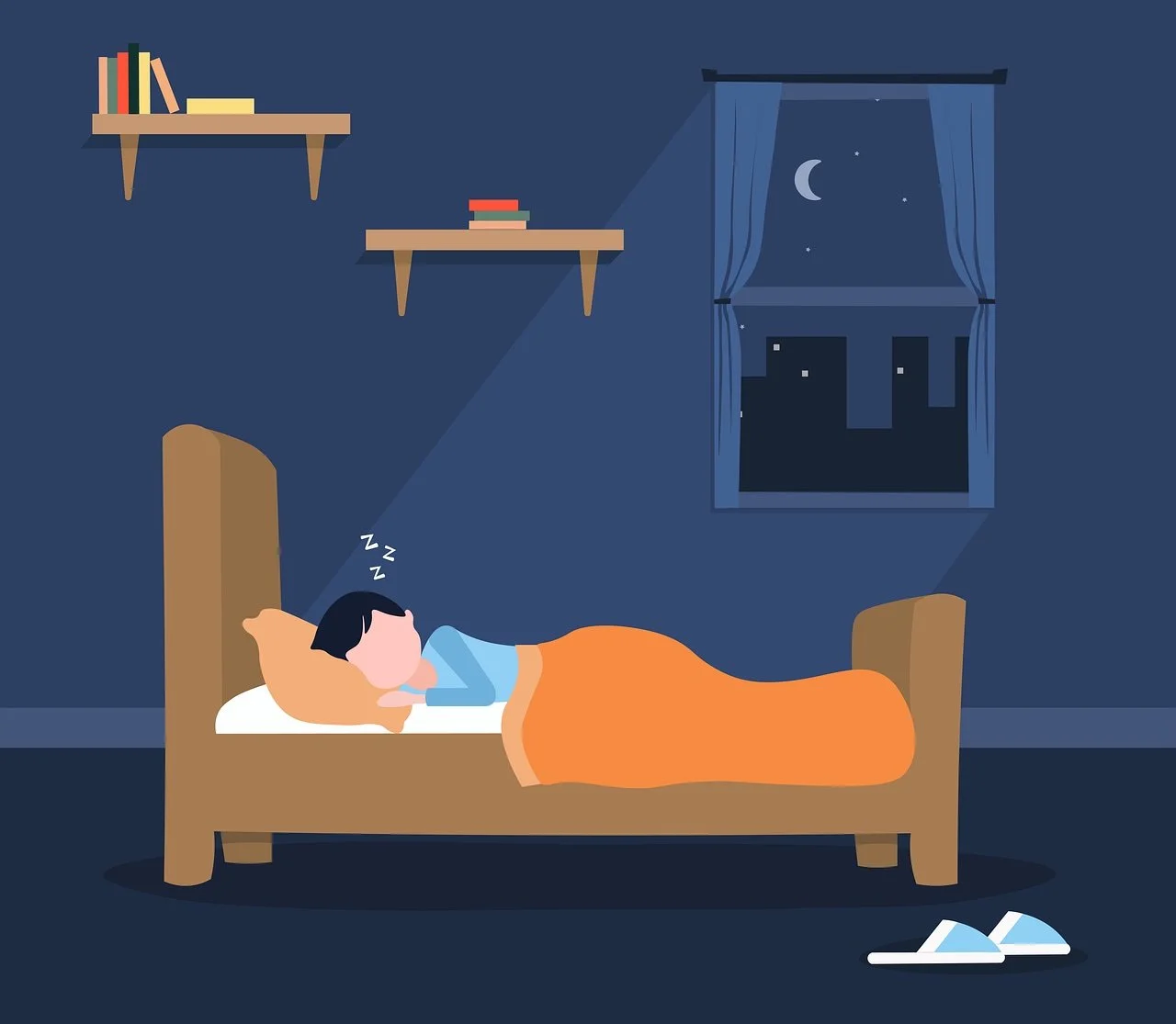SPORTS PERFORMANCE SLEEP GUIDE
The Competitive Edge You’re Probably Missing
Who doesn't think they need more sleep? Everyone is different, so the key is to find out how many hours of sleep you need each night for your body to recover and wake up rested to face the day.
Sleep is the most underrated performance enhancer in sports. It improves reaction time more than caffeine, builds muscle better than protein powder, sharpens decision-making more than film study, and protects you from injury better than any brace or tape job.
I have read that some professional athletes go to great lengths to get 10 hours of sleep a night to be at their peak on gameday. As a high school athlete, it is difficult to get consistent sleep as my workload varies daily. My body does well on 7 hours of sleep, so that is my goal during the week. Living in an apartment in New York City, I'm always hearing sudden noises beyond my control, so I use a sleep machine to block them out. The sleep machine helps me fall asleep faster and prevents interruptions from extraneous noises during the night. On weekends when I play baseball all day, my body needs 9-10 hours of sleep to recover from the increased physical activity on the field.
We live in a world that celebrates hustle but overlooks rest. Sleep is often treated like an optional luxury rather than a biological necessity. Yet, it’s the single most powerful recovery tool our bodies have. From growing children to aging adults, sleep isn’t just about recharging; it’s when healing, growth, and repair take place.
If you want to play harder, think faster, and recover quicker, start with sleep.
HOW MUCH SLEEP DO ATHLETES NEED?
Middle School athletes: 9–11 hours
High School athletes: 8–10 hours
College athletes: 8–9.5 hours
Adult athletes: 7.5–9 hours
Masters athletes (40+): 7.5–9 hours
Think of sleep like training volume:
More demand = more recovery required.
NIGHT ROUTINE FOR ATHLETES: THE “POWER HOUR”
60 Minutes Before Bed
Finish eating
Shut down intense studying or stressful conversations
Limit screens or enable warm-light/night mode
45 Minutes Before Bed
Light stretching, foam rolling, or mobility work
Warm shower to relax muscles
30 Minutes Before Bed
Hydrate lightly
Set out gear for the next day
Turn down room temperature (ideal: 60–67°F)
15 Minutes Before Bed
Breathing exercises (4-7-8 method), meditation, or easy reading
Lights dim, phone away
Consistency wins. The routine matters as much as the sleep itself.
PRE-GAME SLEEP STRATEGY
The Night Before
Avoid late-night screen time
Eat a balanced dinner (protein + complex carbs + veggies)
Prioritize 8+ hours
Game Day Nap
A 20–30 minute power nap boosts reaction time, but avoid anything longer to prevent grogginess.
Travel Hacks
Bring a hoodie, eye mask, and headphones
Sleep on the bus or plane if possible
Stick to local time immediately upon arrival
NUTRITION & SLEEP FOR ATHLETES
Best Evening Foods for Sleep
Turkey, chicken, eggs (tryptophan)
Bananas (potassium + magnesium)
Oatmeal
Greek yogurt
Almonds
Herbal teas: chamomile, mint, tart cherry juice
Foods to Avoid Late
Energy drinks
Caffeinated soda or coffee
Big spicy or heavy meals
Super sugary snacks
HOW SLEEP IMPROVES SPECIFIC SPORTS
⚾ Baseball
Sharper pitch recognition
More consistent command
Faster recovery between starts
Better hand-eye coordination at the plate
🏀 Basketball
Improved vertical jump
Sharper court awareness
Better endurance and decision-making in crunch time
⚽ Soccer
Enhanced footwork and ball control
Faster sprint acceleration
Improved balance and agility
🏈 Football
Better play recall and reaction to reads
Increased power and explosiveness
Reduced injury risk
🏃 Track & Field
Faster sprint times
More efficient stride mechanics
Better lactate clearance
🎾 Tennis / Volleyball
Faster reflexes on serves
Greater accuracy and touch
Better recovery between matches
MENTAL GAME ADVANTAGES
Athletes who sleep well show:
Higher focus
More confidence
Better emotional control
Less pre-game anxiety
Faster strategic thinking
Sleep is the cheapest sports psychologist you’ll ever have.
THE BOTTOM LINE
Sleep is the foundation of elite performance.
If you're chasing PRs, scholarships, championships—this is your edge.
The more you sleep, the better you play.
It’s that simple.

